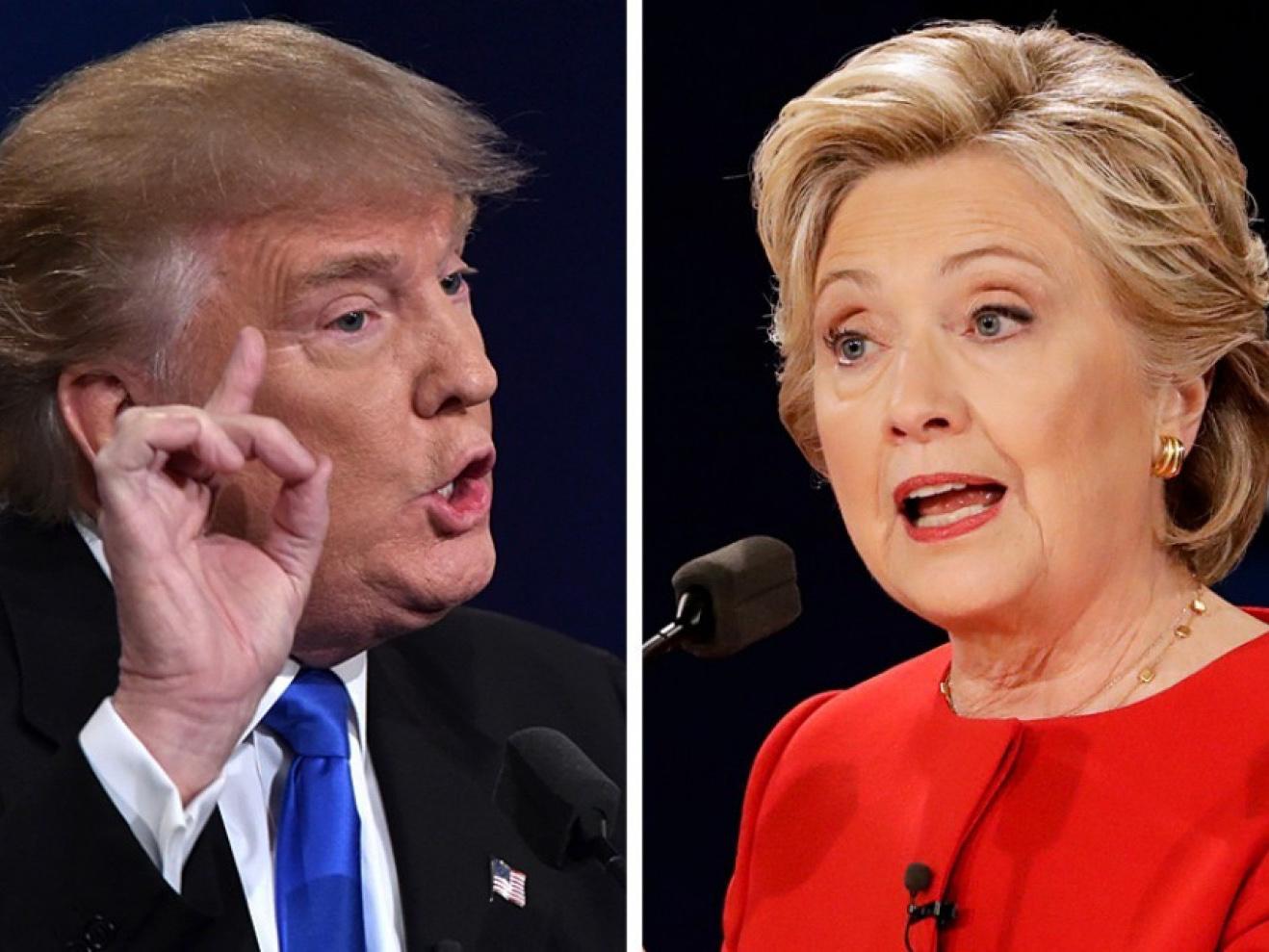Facebook: good for democracy or a way to wage psychological warfare on voters?
Research shows that ‘likes’ could predict sexual orientation, ethnicity, religious views, intelligence, happiness and political beliefs

Your support helps us to tell the story
From reproductive rights to climate change to Big Tech, The Independent is on the ground when the story is developing. Whether it's investigating the financials of Elon Musk's pro-Trump PAC or producing our latest documentary, 'The A Word', which shines a light on the American women fighting for reproductive rights, we know how important it is to parse out the facts from the messaging.
At such a critical moment in US history, we need reporters on the ground. Your donation allows us to keep sending journalists to speak to both sides of the story.
The Independent is trusted by Americans across the entire political spectrum. And unlike many other quality news outlets, we choose not to lock Americans out of our reporting and analysis with paywalls. We believe quality journalism should be available to everyone, paid for by those who can afford it.
Your support makes all the difference.Professor Michal Kosinski is famous for two things: pioneering research that – if you believe the hype – put Trump in the White House and took Britain out of Europe, and being offered a job and threatened with a lawsuit by Facebook on the very same day.
Now at Stanford, Kosinski previously worked at Cambridge University’s Psychometrics centre where, in 2013, he published research showing how a person’s Facebook likes could predict their sexual orientation, ethnicity, religious views, intelligence, happiness and political beliefs. For example, people who were intelligent liked “Thunderstorms” and “The Colbert Report”, and heterosexual men tended to like “Wu Tang Clan”, “Shaq” and “Being Confused After Waking Up From Naps”. The study made it all the more clear you could psychologically profile a person based on their online activity, which lead to the threat and offer from Facebook – of which neither came to fruition – and Kosinski’s notoriety.

The theory goes that by profiling a person from their online activity (not just Facebook likes, which went private shortly after Kosinski published his research), campaigners can then target, or manipulate, a person using that information. The more they know, the better the chances they have of swaying your vote, using what’s euphemistically referred to as “personal communication on social media” – or an advert tailored to your exact psychology: “nudging” on steroids.
Kosinski, for the record, doesn’t believe the hype. He tells The Independent Barack Obama was the first one to use “big data” about individual voters to target them in 2008, adding: “I don't remember liberals losing sleep at that time”. “Politicians don’t need social media to manipulate people,” he says. “Take the First World War where politicians convinced millions of people to literally go and die for no good reason.”
But that doesn’t mean Facebook hasn’t changed everything. Let’s say, in one day of doorstep canvassing, a campaigner can expect to walk an average of four miles to speak to around 200 people. The point of this effort is often not to change minds or sway the results of an election, but to find out who people are voting for and if they are likely to vote at all. With analysis based on someone’s Facebook you already have an idea – and can move straight on to persuading them.
That’s a strategy Cambridge Analytica, a London-based technology company which calls itself a specialist in using “data to change audience behaviour” and famously worked with Trump’s presidential campaign, acknowledges using to try to influence voters. The company’s efforts to sway voters have been described as, alternatively, “psychological warfare” or “shady” – but a spokesperson for Cambridge Analytica disputes that, telling The Independent: “There are some serious misunderstandings and crazy conspiracy theories out there.”
The company want to make it clear that the Trump win was not down to some mass brainwashing exercise. “Cambridge Analytica used the same kind of political data programme as the Obama 2012 campaign to identify, persuade, and turn out voters. Cambridge Analytica did not have the opportunity to dive deeply into our psychographic offering during the US presidential campaign because we simply did not have the time. Building a presidential data program often takes campaigns well over a year,” they said.

So did Facebook win it for Trump? “People ask me if algorithms won the [US] election and my answer is ‘yes and no’. It’s like asking if TV ads won the election. It’s just a fact of political life now that if you want to be a serious politician you need to use some TV ads, and you need to have some rallies,” Kosinski says. “But you also need to have some personal communication on social media. All of the sides of the spectrum are using it.”
To speak to Kosiniski is to be excited about Facebook’s potential to transform our democracy. For one thing, he offers hope for everyone on the verge of emigrating to avoid hearing the phrase “strong and stable” one more time before 8 June. As he puts it, politicians need to rely on sound bites at the moment – they need to connect using TV and radio appearances and as such they need to settle for a lowest common denominator slogan that could appeal to anyone and everyone. “So you say ‘Yes we can; Make America great again’,” Kosinski says. “But if you can talk with people one on one, why would you waste time throwing slogans at them?”
Not everyone is so enthusiastic. Trump representative Brad Parscale famously boasted to Bloomberg he had spent money targeting Facebook users with “dark posts” – non-public posts whose viewership is controlled – making use of a 1996 sound bite to discourage African American Democrats from voting for Clinton in Florida, a state she lost by 112, 911 votes. How can that be good for democracy?

“There’s no question that trying to discourage people from voting is an awful and anti-democratic thing,” Kosinski says. “The fact that we all talk about it is the best example of how a digital environment helps us to really quickly notice and spread information about these behaviours.”
A Cambridge Analytica (CA) spokesperson said: “Voter suppression is illegal and we did not do anything of the sort. CA’s data science programme and digital marketing was entirely aimed at persuading voters to vote for our client [Trump], increasing turnout among his supporters, and boosting volunteer numbers and donations. CA did not engage in any efforts to discourage voters from casting their ballot.”
In journalist Tim Shipman’s authoritative account of the Brexit referendum, All Out War, Leave.EU’s director of communication Andy Wigmore discusses how their campaign embraced people who had “never voted before”. Those people are now involved in the political process, and Kosinski says that’s a very good thing for democracy – regardless of how you feel about the referendum result. “Mainstream politicians in the past tended to ignore whole groups of people because they didn’t have time or money to talk to people. Social media gave politicians the ability to talk to everyone individually.
“The next generation of politicians on both sides of the spectrum will now start talking to those who were excluded or ignored in the past. We will have more informed voters which is great for democracy.”
Other experts aren’t so sure. Vesselin Popov, business development director at the Camdridge University’s Psychometrics Centre where Kosinski used to work, says the issue is people often don’t know if they are being targeted. “If it’s done really well you won’t realise it’s happening,” he tells The Independent. “There’s not one place that you can hide from it, it’s an assault. It’s not all online; different people can be sent to your door based on your personality. They could send leaflets to your area with emotionally charged messages or even fake messages. It’s not confined to Facebook.”
There is currently no obligation for campaigns, or third parties, to report the content of digital ads (the Conservatives recently refused to disclose theirs to The Independent). While we can all see a poster campaign, or know that Theresa May’s slogan is “strong and stable”, online targeting can go unnoticed; whether it’s with voter suppression, or “fake news”, or a clever banner designed by an ad agency.

But is it psychological warfare? “You might call it that,” Popov reasons.
The solution, Popov says – shortly before the Information Commissioner’s Office announces the very same – is an inquiry “sooner rather than later”. The inquiry is looking at how political parties target Britons through social media – and those political parties have been warned that in using people’s data to target them, they could be breaking the law. When we speak again, Popov says it’s “a start” but it’s not enough. “Only the government can call an inquiry into the use of these methods more widely (i.e. outside of specific breach of electoral law) and therefore we may need to continue efforts outside of these channels to see progress in the daily practices around personal data.”
This is new, murky ground, with obvious pitfalls – and obvious benefits. If you believe Kosinski, the fact that modern campaigns will increasingly be individually targeted to voters can only be a good thing. “Personalised political communication is great for everyone involved and for democracy as well. To be able to talk to you about things that are relevant to you, that you’re interested in, that match your dreams or address your fears, is making you – the citizen – more engaged in politics. And it’s great for democracy if more people engage in politics.”
He acknowledges that the role of journalism is to warn of the pitfalls of technology, but he’s keen to point out how good the same technology could be – and that goes beyond elections. “Marketing tools are being used to sell you washing powder,” he says. “If you could use the same tools to convince people to smoke less, exercise more and pay their taxes it’s just great for society.”
Join our commenting forum
Join thought-provoking conversations, follow other Independent readers and see their replies
Comments